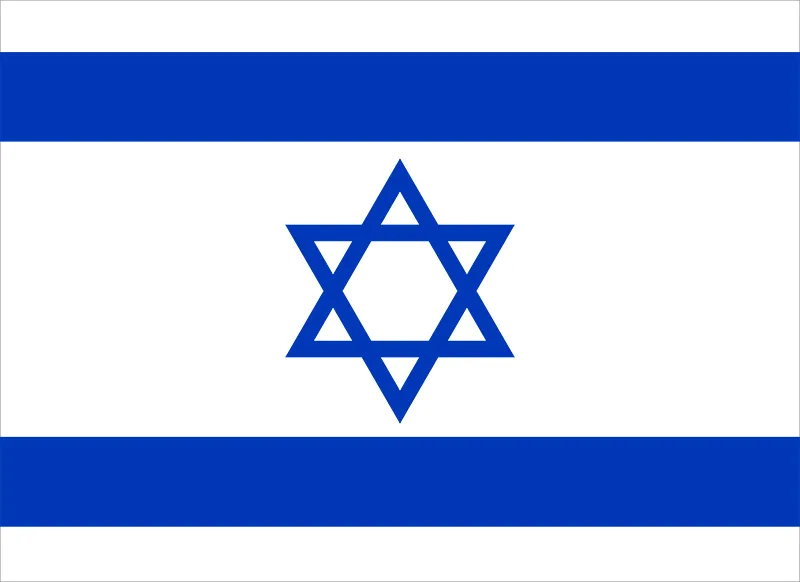Learners’ Tapestry
The kallah who makes a siyum at her wedding.
The executive who does the Daf on her commute.
The retiree who revels in the new time she has for Torah.
The woman who lives in Teaneck. In Jerusalem. In Berlin. In Honolulu.
They’re all here. If you have the drive to learn, you belong.
Connect with the stories of other Hadran women like you. And share your own here.

שבות בראלי

עתניאל, ישראל
התחלתי ללמוד דף יומי באמצע תקופת הקורונה, שאבא שלי סיפר לי על קבוצה של בנות שתיפתח ביישוב שלנו ותלמד דף יומי כל יום. הרבה זמן רציתי להצטרף לזה וזאת הייתה ההזדמנות בשבילי. הצטרפתי במסכת שקלים ובאמצע הייתה הפסקה קצרה. כיום אני כבר לומדת באולפנה ולומדת דף יומי לבד מתוך גמרא של טיינזלץ.
“עשרה דברים נבראו ביום ראשון ואלו הן שמים וארץ תהו ובהו אור וחשך רוח ומים מדת יום ומדת לילה”
חגיגה, יב
Read more

שרה אבר

נתניה, ישראל
רבנית מישל הציתה אש התלמוד בלבבות בביניני האומה ואני נדלקתי. היא פתחה פתח ותמכה במתחילות כמוני ואפשרה לנו להתקדם בצעדים נכונים וטובים. הקימה מערך שלם שמסובב את הלומדות בסביבה תומכת וכך נכנסתי למסלול לימוד מעשיר שאין כמוה. הדרן יצר קהילה גדולה וחזקה שמאפשרת התקדמות מכל נקודת מוצא. יש דיבוק לומדות שמחזק את ההתמדה של כולנו. כל פניה ושאלה נענית בזריזות ויסודיות. תודה גם למגי על כל העזרה.
Read more

Harriet Hartman

Tzur Hadassah, Israel
I began to learn this cycle of Daf Yomi after my husband passed away 2 1/2 years ago. It seemed a good way to connect to him. Even though I don’t know whether he would have encouraged women learning Gemara, it would have opened wonderful conversations. It also gives me more depth for understanding my frum children and grandchildren. Thank you Hadran and Rabbanit Michelle Farber!!
Read more

קרן וינגרטן שרינגטון

מודיעין, ישראל
התחלתי בסיום הש”ס, יצאתי באורות. נשברתי פעמיים, ובשתיהם הרבנית מישל עודדה להמשיך איפה שכולם בסבב ולהשלים כשאוכל, וכך עשיתי וכיום השלמתי הכל. מדהים אותי שאני לומדת כל יום קצת, אפילו בחדר הלידה, בבידוד או בחו”ל. לאט לאט יותר נינוחה בסוגיות. לא כולם מבינים את הרצון, בפרט כפמניסטית. חשה סיפוק גדול להכיר את המושגים וצורת החשיבה. החלום זה להמשיך ולהתמיד ובמקביל ללמוד איך מהסוגיות נוצרה והתפתחה ההלכה.
בא עני אחד ואמר רבי פרנסני אמרתי המתן שאפרוק מן החמור לא הספקתי לפרוק עד שיצתה נשמתו… אמר להם אוי לי אם לא ראיתוני בכך
תענית
Read more

Shoshana Shinnar

Jerusalem, Israel
When I was working and taking care of my children, learning was never on the list. Now that I have more time I have two different Gemora classes and the nach yomi as well as the mishna yomi daily.
you do what is right and Hashem will do what is left
Other
Read more

Susan Handelman

Jerusalem, Israel
Inspired by Hadran’s first Siyum ha Shas L’Nashim two years ago, I began daf yomi right after for the next cycle. As to this extraordinary journey together with Hadran..as TS Eliot wrote “We must not cease from exploration and the end of all our exploring will be to arrive where we began and to know the place for the first time.
Other
Read more

Terri Krivosha

Minneapolis, United States
I had no formal learning in Talmud until I began my studies in the Joint Program where in 1976 I was one of the few, if not the only, woman talmud major. It was superior training for law school and enabled me to approach my legal studies with a foundation . In 2018, I began daf yomi listening to Rabbanit MIchelle’s pod cast and my daily talmud studies are one of the highlights of my life.
Eruvin, Daf 100a. שב ואל תעשה
Eruvin, 100a
Read more

רוית קלך

מודיעין, ישראל
באירוע של הדרן בנייני האומה. בהשראתה של אמי שלי שסיימה את הש”ס בסבב הקודם ובעידוד מאיר , אישי, וילדיי וחברותיי ללימוד במכון למנהיגות הלכתית של רשת אור תורה סטון ומורתיי הרבנית ענת נובוסלסקי והרבנית דבורה עברון, ראש המכון למנהיגות הלכתית.
הלימוד מעשיר את יומי, מחזיר אותי גם למסכתות שכבר סיימתי וידוע שאינו דומה מי ששונה פרקו מאה לשונה פרקו מאה ואחת במיוחד מרתקים אותי החיבורים בין המסכתות
ואם אשה חשובה היא צריכה הסיבה (פסחים קח א)
ברכות
Read more

אריאלה ביגמן

מעלה גלבוע, ישראל
התחלתי ללמוד גמרא בבית הספר בגיל צעיר והתאהבתי. המשכתי בכך כל חיי ואף היייתי מורה לגמרא בבית הספר שקד בשדה אליהו (בית הספר בו למדתי בילדותי)בתחילת מחזור דף יומי הנוכחי החלטתי להצטרף ובע”ה מקווה להתמיד ולהמשיך. אני אוהבת את המפגש עם הדף את “דרישות השלום ” שמקבלת מקשרים עם דפים אחרים שלמדתי את הסנכרון שמתחולל בין התכנים.
בְּכׇל דּוֹר וָדוֹר חַיָּיב אָדָם לִרְאוֹת אֶת עַצְמוֹ כְּאִילּוּ הוּא יָצָא מִמִּצְרַיִם, שֶׁנֶּאֱמַר: ״וְהִגַּדְתָּ לְבִנְךָ בַּיּוֹם הַהוּא לֵאמֹר בַּעֲבוּר זֶה עָשָׂה ה׳ לִי בְּצֵאתִי מִמִּצְרָיִם״.
פסחים קטז ב
הדרך המדהימה בא מלמדים אותנו חז”ל איך מעבירים מסורת איך הישן מתחדש והחדש מתקדש והשרשרת לא פוסקת..
ברכות
Read more

Janine Rubens

Virginia, United States
After reading the book, “ If All The Seas Were Ink “ by Ileana Kurshan I started studying Talmud. I searched and studied with several teachers until I found Michelle Farber. I have been studying with her for two years. I look forward every day to learn from her.
If you study Talmud, you please God even more than you do by praying or fasting.
Other
Read more

Karena Perry

Los Angeles, United States
I started my Daf Yomi journey at the beginning of the COVID19 pandemic.
Other
Read more

Rochel Cheifetz

Riverdale, NY, United States
I started learning daf in January, 2020, being inspired by watching the Siyyum Hashas in Binyanei Haumah. I wasn’t sure I would be able to keep up with the task. When I went to school, Gemara was not an option. Fast forward to March, 2022, and each day starts with the daf. The challenge is now learning the intricacies of delving into the actual learning. Hadran community, thank you!
Read more


